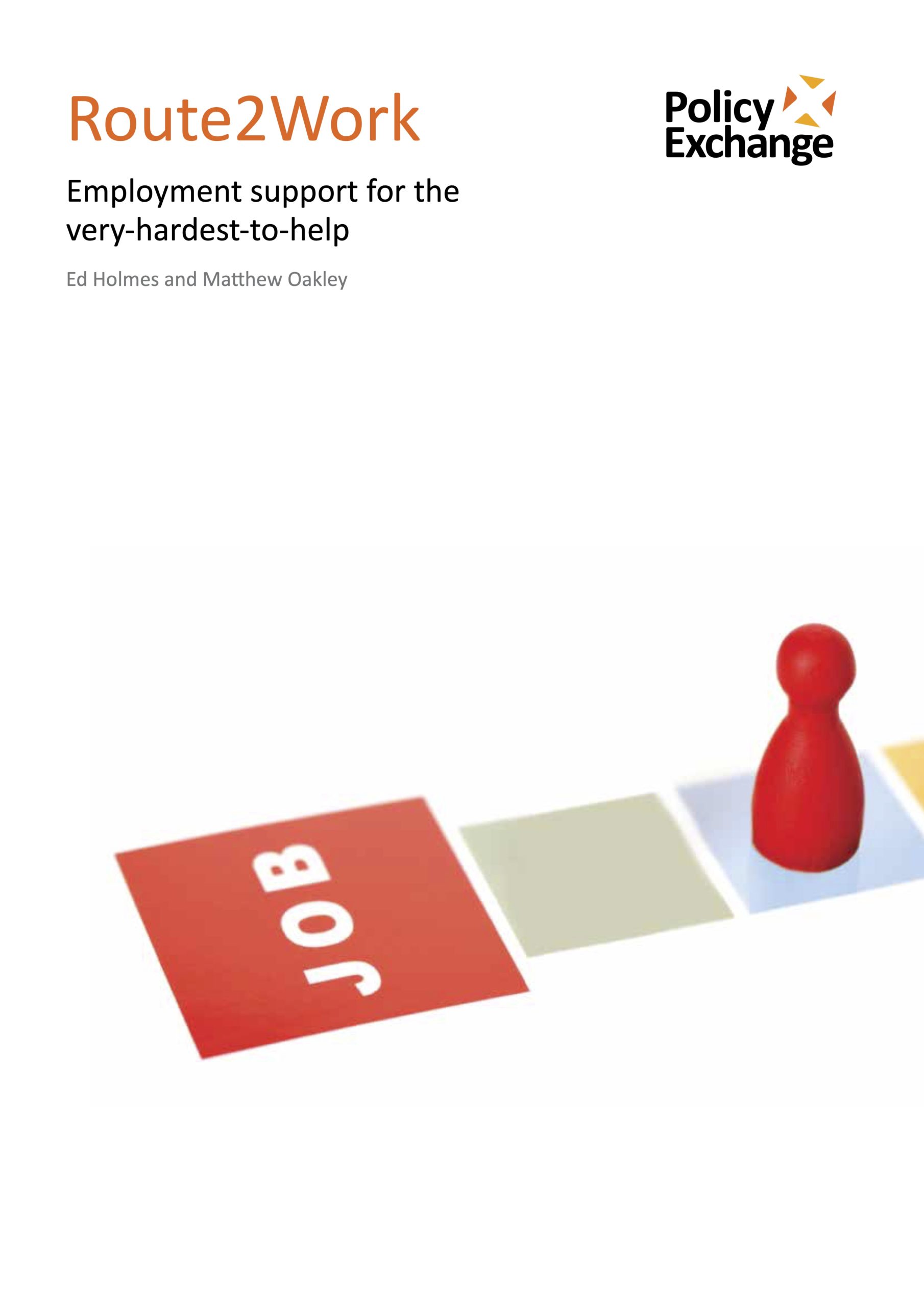
Route2Work: Employment support for the very-hardest-to-help
The Work Programme is not doing enough to help those furthest away from the labour market.Route2Work: Employment support for the very-hardest-to-help, says that paying private and voluntary providers to help people back into work is a sensible approach to reducing unemployment. However, there needs to be a new complementary scheme that encourages and rewards charities, social enterprises and small-scale providers to help the most vulnerable people.
The report recommends the introduction of a new programme – Route2Work – that will provide support for a minimum of 100,000 people every year. Unlike the Work Programme, social enterprises and specialist charities would be paid upfront to provide intensive and personalised support to help people tackle barriers to the labour market. This could include building employment skills by working in a social enterprise or simply joining up existing health and social care with employment and skills support. Evidence cited in the research found that 61% of Work Programme clients do not have basic numeracy and literacy skills.
The report says that the number of people out of work for over twelve months has increased by 520,000 since the financial crash and, while the Work Programme will remain the most appropriate form of support for the overwhelming majority of these individuals, the levels of payment and the contract structures mean it is unlikely that enough money will ever be available for those with the very greatest needs. Support for those leaving the Work Programme without finding work is also currently insufficient.
The new scheme would work like this:
- Work Programme providers would be allowed to place 5% of their hardest to help cases on Route2Work with any payments returned to the government.
- Route2Work would also be available to claimants who are unable to find sustainable work after two years on the Work Programme, who began to return to Jobcentre Plus in June 2013.
- Route2Work contract payments would be based on an upfront transfer of the total expected amount of benefit payments that the participants would receive over at least two years. The provider would have responsibility for reimbursing DWP for future benefit payments and could keep any savings from the claimant moving into work.
- Route2Work will also aim to attract social investment and join up existing streams of finance from local and central government and the European Social Fund. This approach would also make it an ideal scheme for inclusion within the government’s City Deals process.


